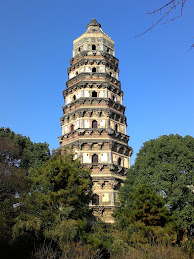Taipei Times (英文《台北時報》)
Editorial & Opinion (言論廣場)
Sat, Feb 17, 2024 page 8
'Long' wait for 'Chinese dragon' to go English → https://www.taipeitimes.com/News/editorials/archives/2024/02/17/2003813656
By Hugo Tseng 曾泰元
The pre-eminent authority on the English language, the Oxford English Dictionary (OED), last month issued an update to one of its entries, adding the term "Chinese dragon" to its lexicon for the first time.
The Chinese word long (龍) has for a long time been translated simply as "dragon," but many commentators opposed this, believing that the traditional Western concept of a dragon is represented by the embodiment of a fearsome, wicked monster that must be killed.
It was deemed unsuitable to use a wicked and inauspicious Western dragon to refer to an auspicious Chinese dragon, so it was recommended that a rectification be made to the entry.
The phonetic transliteration of the Mandarin for "Chinese dragon" can be written long, loong or lung.
There was sound reasoning behind the change. Chinese dragons and Western dragons bring to mind distinct physical traits and there are important differences in the cultural connotations.
Moreover, in terms of symbolism, the two types of dragons are polar opposites, respectively representing benevolence and wickedness.
The long spelling is from China's Hanyu pinyin system, which is considered the international standard for Romanized Chinese.
The spelling is also used by Encyclopaedia Britannica and Wikipedia.
However, long could be misread as the English word "long," referring to length, so the OED used "Chinese dragon."
Culturally specific terminology in English is often derived from transliterations and doing so with such entries is universally applicable.
However, Chinese speakers should not have the final say over how English speakers use their own language.
New terms must be widely recognized by English speakers, which might take a long time.
Dictionary entries are not written in stone by a single person, but become part of a language when terms become common parlance and are broadly recognized by native speakers.
A sense-for-sense translation of long into English should allow connections to be drawn between Chinese and Western dragons, while also providing a synonym to allow more robust descriptions.
As understanding of the East has increased in the West, and amid deconstruction and reinterpretation of cultural signaling in the English language, the traditional definition of "dragon" as a ferocious entity has softened somewhat, influencing the awareness of English speakers.
Neither Webster's Dictionary, which is widely used in the US, nor the New Oxford English Dictionary — which is distinct from the OED — have the term "Chinese dragon," yet they have in their definitions for "dragon" descriptions of the benevolence and auspiciousness of the Chinese variety.
Languages evolve and definitions are fluid. The word "dragon," which used to be negatively tinged, has gradually developed a more positive image.
More Westerners have come to see Chinese dragons as also having an auspicious meaning, and thus the term "dragon" can continue to be used to refer to Chinese dragons without throwing out the Western understanding of the word entirely.
Hugo Tseng is an associate professor and former chair of Soochow University's literature and English-language department. He has participated in the editing and revision of several English-Chinese dictionaries and reference materials.
Translated by Tim Smith
Subscribe to:
Post Comments (Atom)



No comments:
Post a Comment